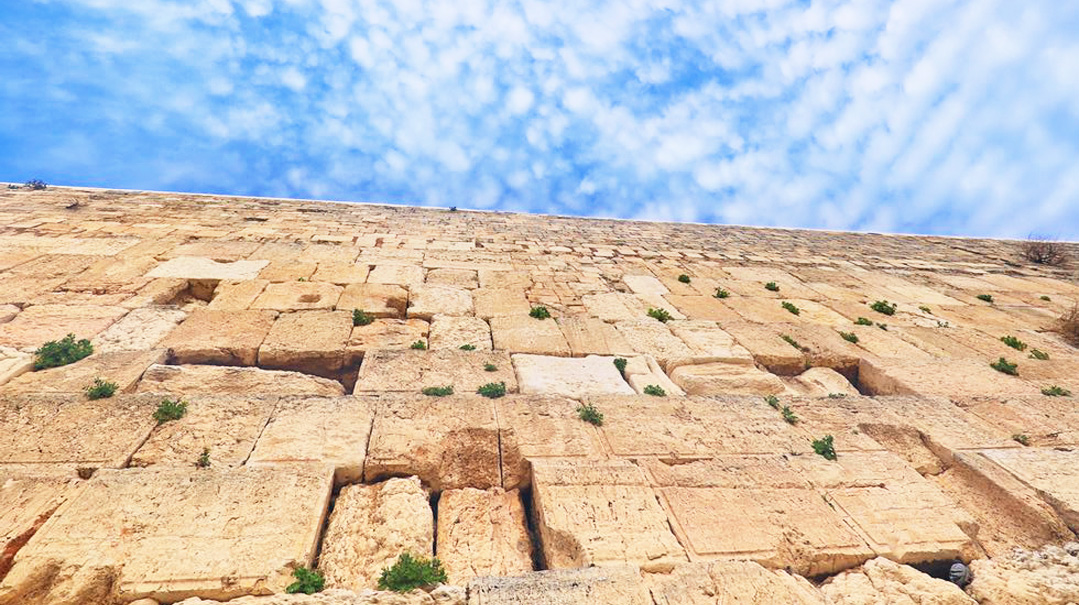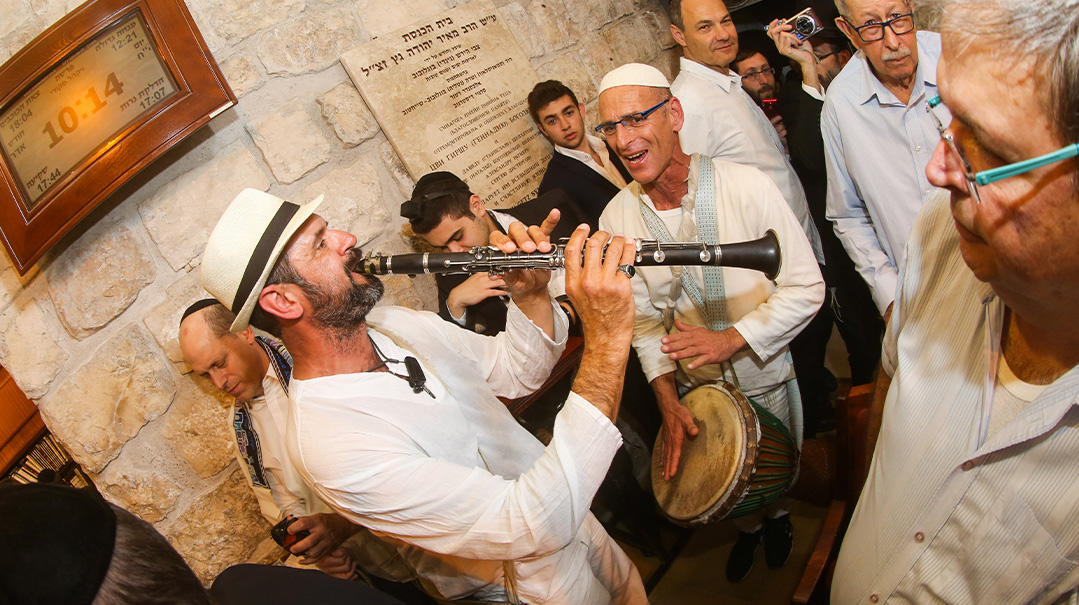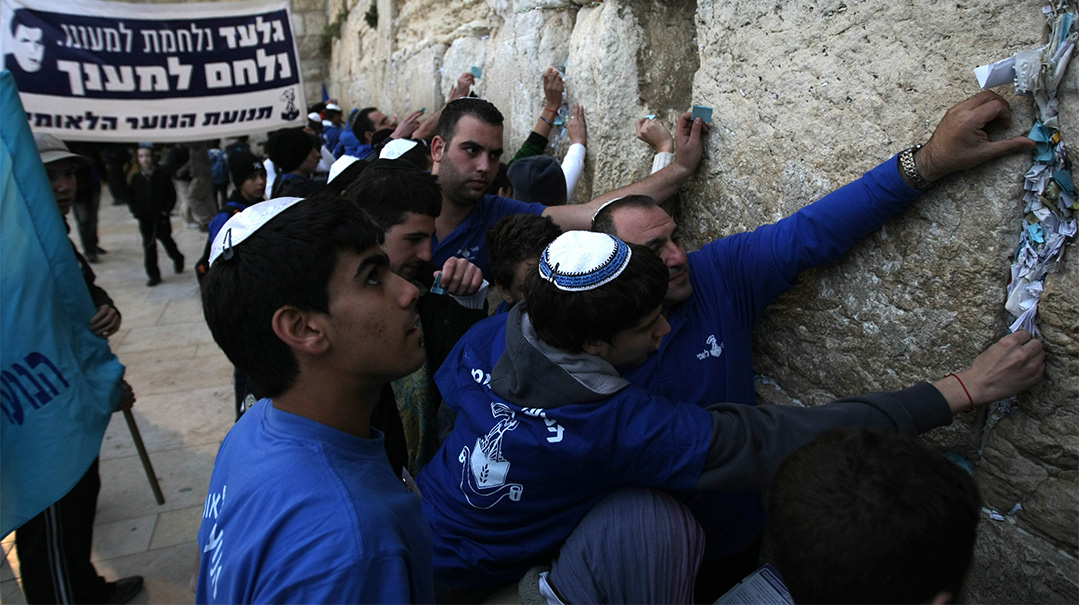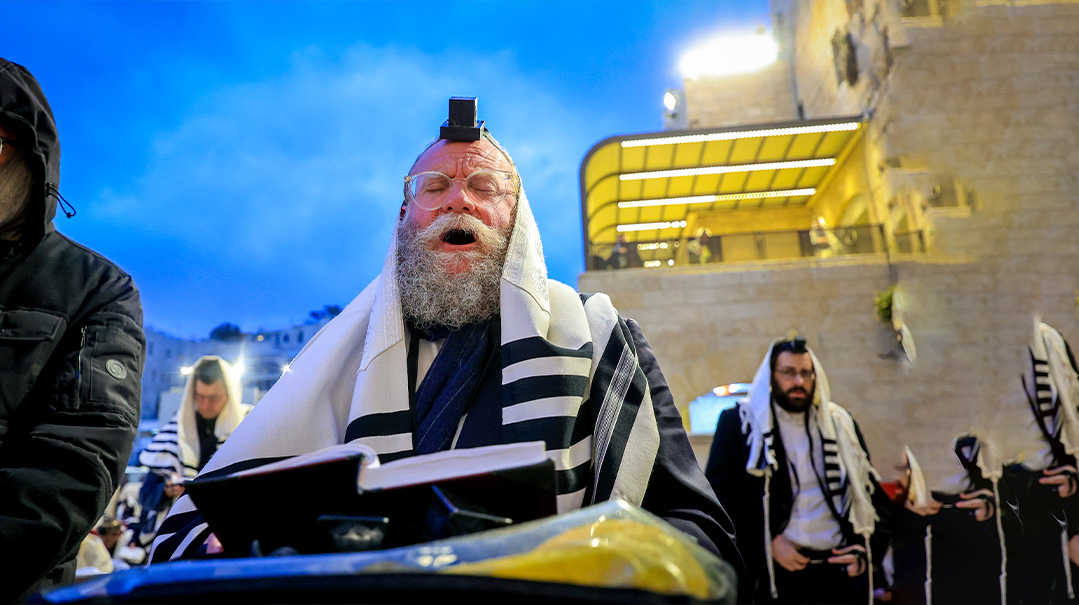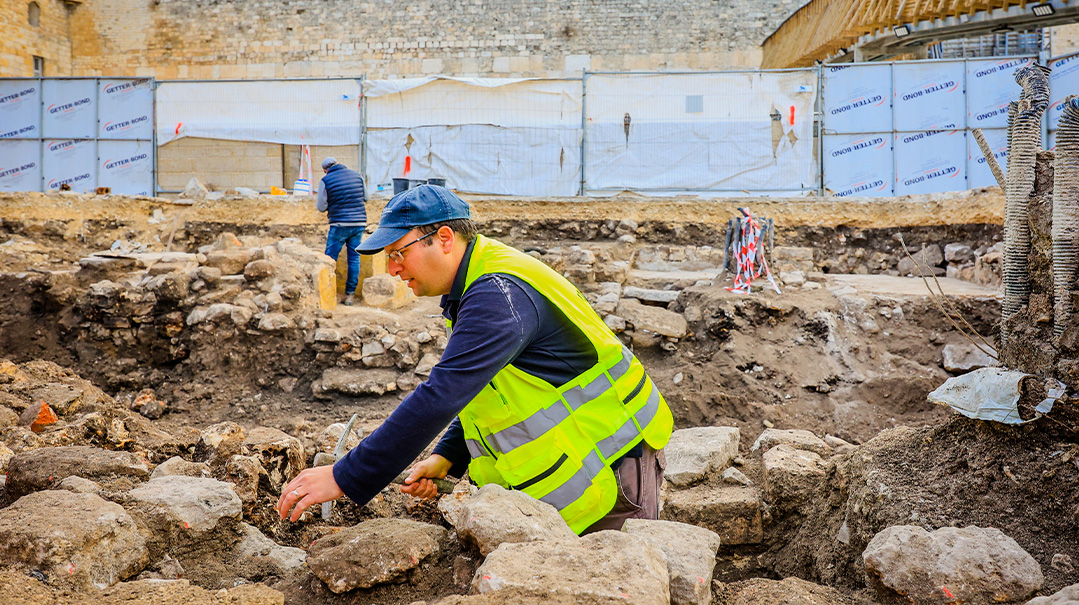Sacred Route
| April 11, 2022Motti Levy’s been driving for Egged since 1969, when access to the Kosel was still a newly won thrill
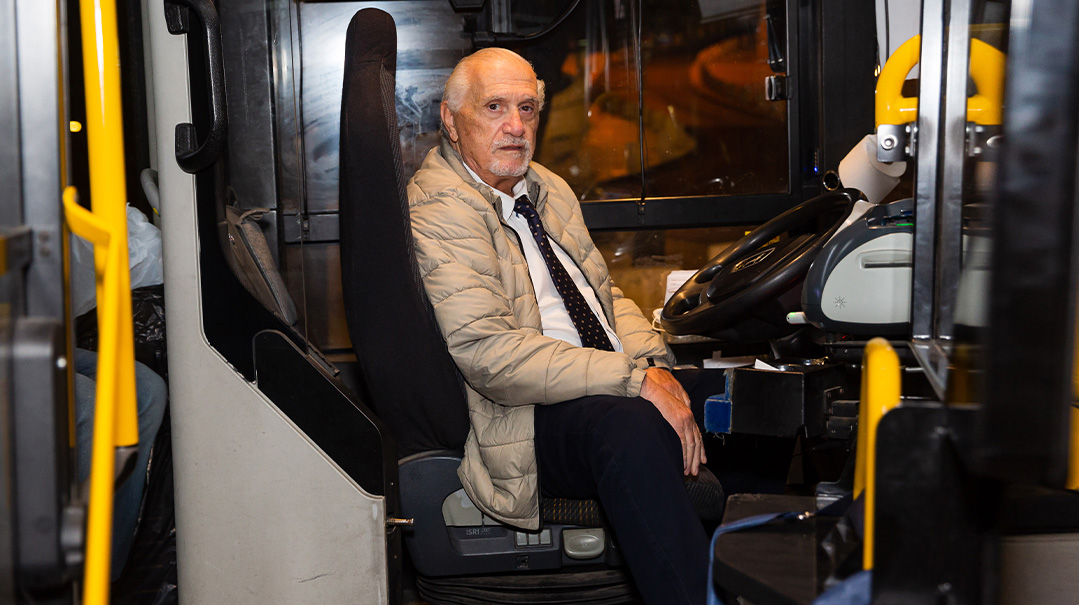
It’s shortly before 5 a.m., and the normally bustling Jerusalem Central Bus Station is eerily quiet. In the heavy fog, I hear it before I see it: a Number-One Egged bus, taking its daily predawn route to the Kosel.
Motti Levy, the white-haired driver, is awake and alert. At 73 years old, Mr. Levy is semiretired and only drives between 4 and 10 a.m. He’s been driving this route for the last four or five years and enjoys the empty streets, the quiet drive — and the very special passengers.
He’s about to pull out of the bus stop, but then he glances into his mirror and brakes. There’s a woman rushing toward the bus, and he graciously waits for her to board before continuing.
“A regular?” I ask. He nods. Most of the passengers at this hour are.
The scene repeats itself at many of the stops. Mr. Levy knows his customers well, and considers it a privilege to take them to their sacred destination. Over the years, he’s built a steady if limited relationship with his passengers — beyond the morning greetings, there are conversations, and questions, and even shalach manos come Purim.
When we arrive at a stop in Geula he pulls up as close to the curb as possible, so the doors open directly before an older Yerushalmi Yid. “This is HaRav Eliezer,” he tells me. “He’s a neshamah gedolah — a lofty soul. Lots of times he’ll tell me divrei Torah as we drive.”
Mr. Levy’s been driving for Egged since 1969, when access to the Kosel was still a newly won thrill. Just two years earlier, during the Six Day War, young Motti had served in the IDF’s Seventh Brigade. He remembers the heady miracles of the lightning war.
“We were amazingly successful, beyond any normal bounds,” he says as he maneuvers the bus through the silent streets. “I was stationed in the Sinai, and I remember how the Egyptians crumbled in front of us. We kept hearing reports of unbelievable achievements on the other fronts, too. But when we heard that the Kosel was back in our hands, that was different. We were soldiers, we were tough, but when we heard that our boys had made it to the Kosel, we all got emotional.”
Decades later, you have to peel back layers of prosaic routine to find emotion in this matter-of-fact bus driver, but it’s still there. Mr. Levy’s enthusiasm, however, seems to focus on his passengers more than his destination. “You know, my people kept coming to the Kosel no matter what,” he says. “Even during the Covid lockdowns, when there were quotas regulating the number of buses per day, my route wasn’t canceled. If you know these people, you know that they’re going to show up every morning. Nothing stops them — not the weather, not Covid, not political tensions.”
What Mr. Levy doesn’t say is that nothing stops him either. Luckily, his bus has never been stoned, but he’s had friends who weren’t so lucky. Hearing of a fellow driver who was injured always strikes close to home — but he makes every effort to get his admirable passengers as close to the Kosel as security allows. This morning route is his sacred commitment and he intends to honor it, no matter what.
He doesn’t make it down to the Wall himself very often. But for the most part, he sees his role behind the wheel, conveying his passengers day after day to their chosen place of prayer.
“You know,” he tells me, gesturing toward the men and women in the seats behind, “when someone wakes up so early day in and day out — it says something about a person. You can tell they’re special. It’s the same people every day for years, and I know them well. It’s a pleasure to talk to them. They are maaminim with strong values. They’re serious and dedicated and have a very high level of self-awareness.”
Serious and dedicated, I understand, but I can’t help but ask how he can know they’re self-aware.
“In this place you’re able to meet yourself in a way that doesn’t happen elsewhere. And these people do that every single day.”
(Originally featured in Mishpacha, Issue 907)
Oops! We could not locate your form.

